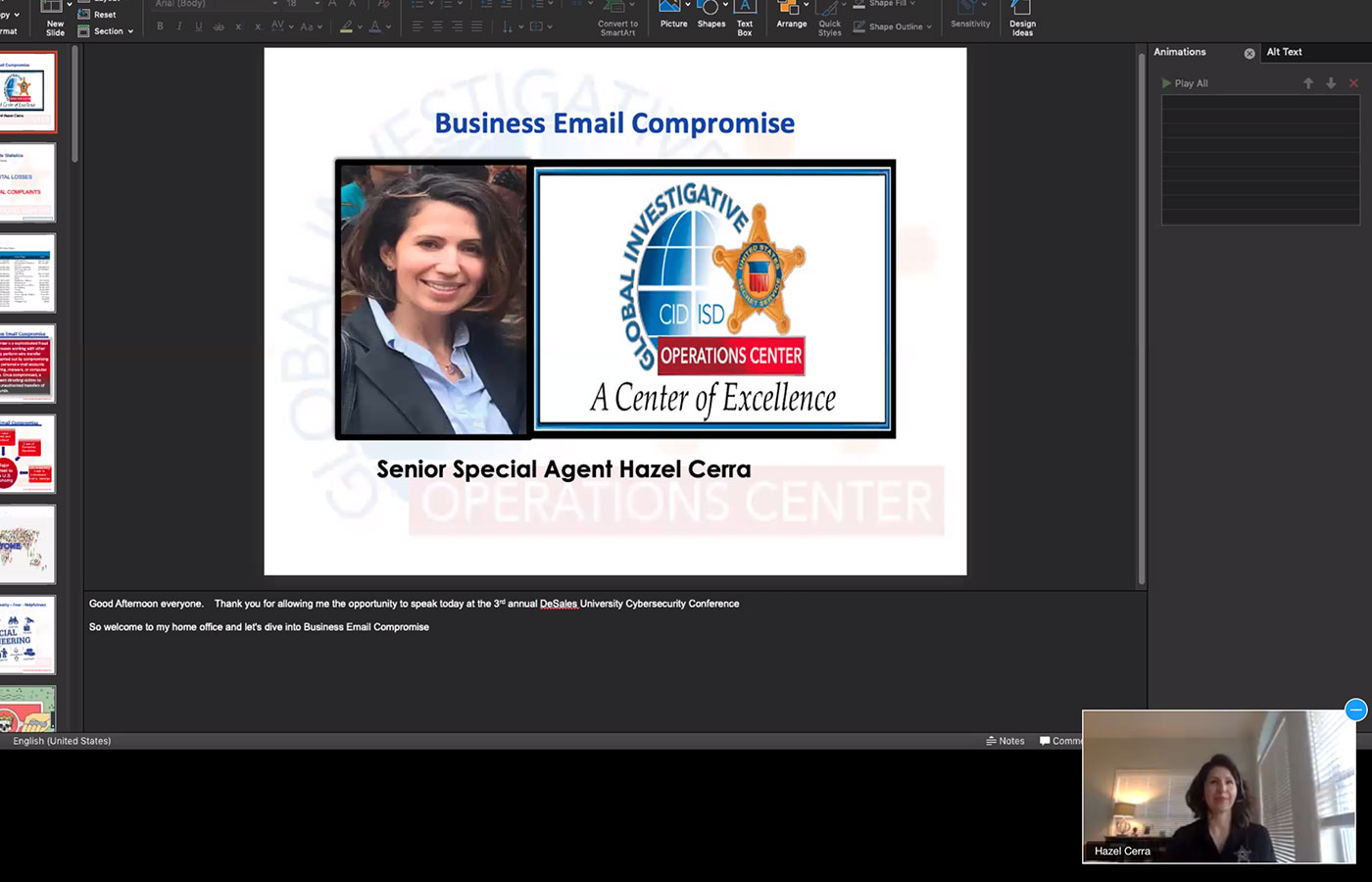Adult Studies
Earn or complete your degree at DeSales. Online or in person, it's always personal.



A summer filled with purpose and potential.
Online Summer Courses at DeSales.
Small class sizes. Big impact to your transcript. And everyone's welcome. If you're thinking about earning extra credits this summer, our online college courses are fast, flexible, and affordable.

Admission is simple*
All we require is your high school diploma or GED and the desire to learn.
Your education should fit your schedule. We get it. At DeSales, we'll make sure you have the support to make it work. Earn or finish your bachelor’s degree or certificate at the pace, place, and times you choose.
- rolling admissions — start any time throughout the year
- 6, 8, and 3 week accelerated courses, with an option to take traditional day courses
- classes meet online, on campus, or Flex — which combines the best of both
- a generous transfer credit policy — transfer up to 75 credits
* Our 15-Month Accelerated BSN second-degree program is a full-time program with a special application process and admissions requirements.

Find the link between opportunity and affordability.
Returning to school to pursue your educational dream is not the kind of decision you can — or should — make on a whim. At DeSales, we wholeheartedly encourage self-knowledge and exploration. We're here to help you find the program that meets your needs.
Enroll in our Adult Studies program to learn more about the endless opportunities at DeSales University.
Connect with an Adult Studies Admission Counselor
Schedule your one-on-one campus or virtual appointment with one of our friendly admissions counselors. Your counselor will be able to prepare a no-obligation transfer credit evaluation and guide you through registration. We look forward to meeting you!

Generous Credit Transfer Policy
With DeSales' generous transfer policy, you can transfer up to 25 three-credit courses toward your DeSales degree — and if you already have your Associate's degree, all your credits will transfer to DSU.*
Wondering which of your credits will transfer? We'll be happy to give you a personalized, no-obligation transfer credit evaluation.


Why Choose DeSales Adult Studies?
You'll be academically satisfied
You'll be prepared to succeed
You'll be in good company
You'll build up your resume
Third Annual Cyber Security and Digital Forensics Conference Goes Virtual

The Coronavirus pandemic may have brought large swaths of society to a standstill but it’s not stopping cyber thieves from targeting your personal and business information. That was the theme of the Third Annual Cyber Security and Digital Forensics Conference.
The Master of Arts in Criminal Justice (MCJ) Program and Master of Science in Cyber Security Program joined forces for the virtual event, which featured the Pennsylvania National Guard Wi-Fighter Cyber Challenge along with presentations from experts in incident response, hacking, and programming, among other areas.
Hazel Cerra, a senior special agent with the United States Secret Service, broke down the basics of business email compromise—one of the fastest growing cyber crimes affecting nearly every industry. BEC crimes can take a variety of forms—from romance scams to scammers using spoofed email addresses and domain names to ask for money or gift cards.
“BEC is not a technical scam,” said Cerra. “In fact, it uses very little technology to create some of the best results that we’ve seen and some serious losses to our country.”
According to Cerra, these scams are so successful because they’re easy to pull off and there’s very little risk. On average, a BEC attack brings in $130,000 per scheme compared to a bank robbery, which typically nets just $3,800.
“We always say that dumb people are the ones that rob banks,” she said. “It’s the smart people that can social engineer their way into a successful scheme.”
A few of the biggest red flags to be on the lookout for are emails containing urgent requests, those from someone who is out of contact, or those containing poor language and grammar. Cerra recommends adjusting the privacy settings on your LinkedIn account—especially if you’re in accounting or financing—so people can’t view your connections. But the biggest way to avoid becoming a victim is communication.
“We can be sitting across the desk from each other and we won’t even talk to each other,” Cerra said. “We will send an email or an IM, and that is what the bad guys are leveraging from our new work environment.”
For Those Who Serve


Flex Classes: In Class or Online
Flex classes are designed for students who enjoy the experience of live-time, instructor-led classes but can't always physically get to campus.
Courses are offered in Center Valley with students being able to participate synchronously from anywhere in the world via the internet.

Search For Classes
Wondering which classes are running during different semesters and sessions? Curious to read course descriptions for your topic of interest? Planning ahead? Self-Service for prospective students* will give you a look into which classes are running and when.
Note: If you are already a DeSales student, please search for classes through WebAdvisor Self-Service in MyDSU
*This link is best viewed on a desktop device.

DeSales gave me the unique opportunity to go to school full time at night and apply everything I was learning directly to my daytime job ... The value is clear and explains why [Adult Studies] has been making a difference in the lives of students for over 40 years!





